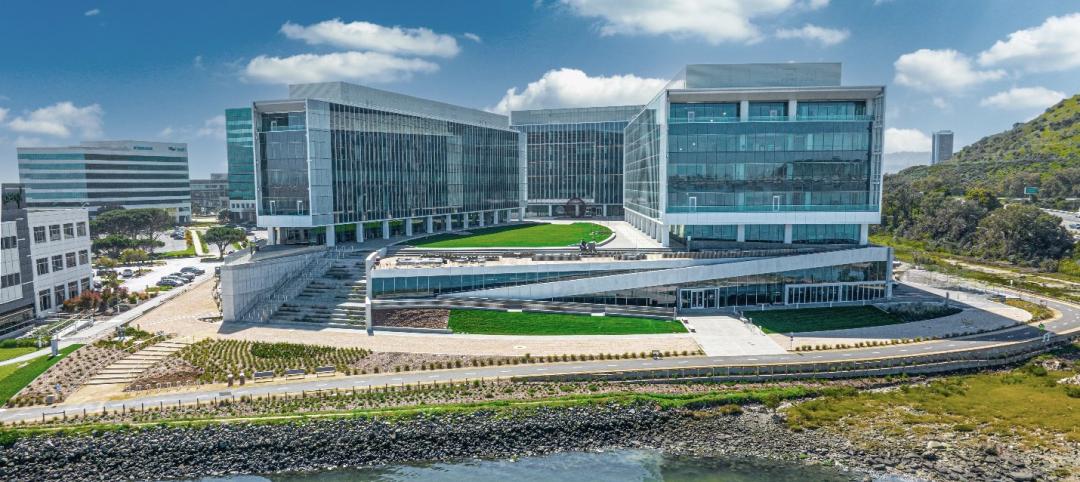2020 has been a peach, hasn’t it? A global pandemic. Raging wild fires. Riots and looting. Facemask battles. Ongoing trade wars. Election-year shenanigans. Recession fears. Increasingly divisive politics. Everything canceled. (Lest we forget zombie deer and murder hornets.)
In a year of jobsite shutdowns, project delays, funding pitfalls, and project postponements—and with no guarantee of a more prosperous 2021—it is understandable for AEC firm leaders to take a guarded, hunker-down stance when planning for next year and beyond. It is natural for firms to focus first on “right sizing” the business by slashing investments, overhead, and operational costs.
But these positions of passivity and cost-cutting run counter to the key lessons from AEC leaders who successfully navigated their firms through past market downturns and economic events, says Scott Winstead, President of FMI Management Consulting, who’s firm last year studied takeaways and strategic lessons from the Great Recession (BDCnetwork.com/DownturnLessons).
A common mistake AEC firms make during down cycles, says Winstead, is running the firm as a collection of projects, versus a business. “It’s a subtle but very distinctive difference that speaks to the long view versus the short view, and to the notion that you can’t save your way to prosperity,” says Winstead.
The firms that came out of the Great Recession in growth mode, according to the FMI research report, focused on investing in their clients, people, and business; they diversified their services and found unique ways to outperform the competition; they streamlined their operations and put their “A” players in a position to succeed and grow the business; and they created a company culture that is nimble, collaborative, and transparent.
Winstead says 2020-21 should be no different. “If I think back to 2008 and the beginning innings of the Great Recession, I heard then what we heard early on in this scenario, which is mistaking backlog as a proxy for health,” he says. “Backlog is a reflection of work that has already been sold and booked, and is in the process of being burned off. Past performance is no guarantee of future results.”
The key finding of the FMI research, which gathered insights from more than 150 engineering and construction executives, was that AEC leaders who increased their financial investment in strategy reported higher effectiveness in operations, strategy, and overall company performance, compared to respondents who either didn’t do anything or decreased spending in that area. “Strategic thinking and planning are among the top leadership skills needed to be an effective leader during a recession,” wrote the authors of the report.
Download the FMI report, “Leading Through Business Cycles: Lessons Learned From E&C Executives,” at: BDCnetwork.com/DownturnLessons.
Related Stories
Cultural Facilities | Mar 27, 2024
Kansas City’s new Sobela Ocean Aquarium home to nearly 8,000 animals in 34 habitats
Kansas City’s new Sobela Ocean Aquarium is a world-class facility home to nearly 8,000 animals in 34 habitats ranging from small tanks to a giant 400,000-gallon shark tank.
Market Data | Mar 26, 2024
Architecture firm billings see modest easing in February
Architecture firm billings continued to decline in February, with an AIA/Deltek Architecture Billings Index (ABI) score of 49.5 for the month. However, February’s score marks the most modest easing in billings since July 2023 and suggests that the recent slowdown may be receding.
Cultural Facilities | Mar 26, 2024
Renovation restores century-old Brooklyn Paramount Theater to its original use
The renovation of the iconic Brooklyn Paramount Theater restored the building to its original purpose as a movie theater and music performance venue. Long Island University had acquired the venue in the 1960s and repurposed it as the school’s basketball court.
Adaptive Reuse | Mar 26, 2024
Adaptive Reuse Scorecard released to help developers assess project viability
Lamar Johnson Collaborative announced the debut of the firm’s Adaptive Reuse Scorecard, a proprietary methodology to quickly analyze the viability of converting buildings to other uses.
Security and Life Safety | Mar 26, 2024
Safeguarding our schools: Strategies to protect students and keep campuses safe
HMC Architects' PreK-12 Principal in Charge, Sherry Sajadpour, shares insights from school security experts and advisors on PreK-12 design strategies.
Green | Mar 25, 2024
Zero-carbon multifamily development designed for transactive energy
Living EmPower House, which is set to be the first zero-carbon, replicable, and equitable multifamily development designed for transactive energy, recently was awarded a $9 million Next EPIC Grant Construction Loan from the State of California.
Museums | Mar 25, 2024
Chrysler Museum of Art’s newly expanded Perry Glass Studio will display the art of glassmaking
In Norfolk, Va., the Chrysler Museum of Art’s Perry Glass Studio, an educational facility for glassmaking, will open a new addition in May. That will be followed by a renovation of the existing building scheduled for completion in December.
Sustainability | Mar 21, 2024
World’s first TRUE-certified building project completed in California
GENESIS Marina, an expansive laboratory and office campus in Brisbane, Calif., is the world’s first Total Resource Use and Efficiency (TRUE)-certified construction endeavor. The certification recognizes projects that achieve outstanding levels of resource efficiency through waste reduction, reuse, and recycling practices.
Office Buildings | Mar 21, 2024
Corporate carbon reduction pledges will have big impact on office market
Corporate carbon reduction commitments will have a significant impact on office leasing over the next few years. Businesses that have pledged to reduce their organization’s impact on climate change must ensure their next lease allows them to show material progress on their goals, according to a report by JLL.

















